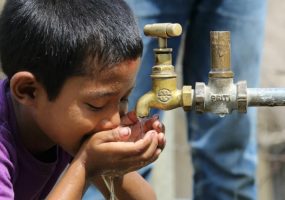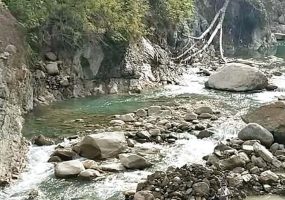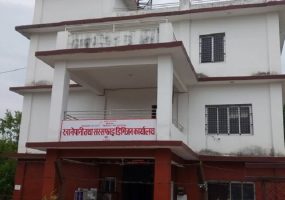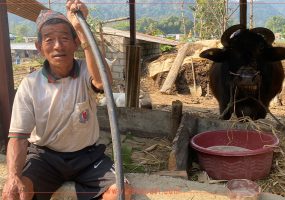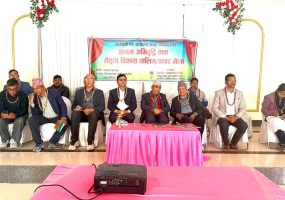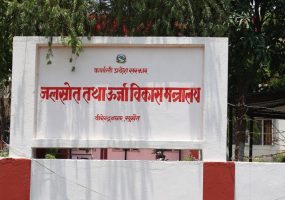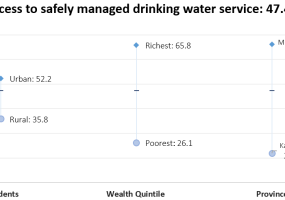The devastating earthquake that struck Jajarkot and surrounding districts, including Rukum West, on November 3, 2023, had catastrophic effects on the Chinabagar area of Sanibheri Rural Municipality. The natural disaster left families struggling for survival, depriving them of basic necessities such as safe drinking water, which was critical for maintaining public health and sanitation in the aftermath.
In Sanibheri Rural Municipality Ward No. 1, Chinabagar community is predominantly inhabited by Janajati and Dalit Cast. The earthquake claimed six lives, injured 47 people and disrupted the lives of over 84 households, including that of Kawali Pun and her family of five. The destruction of vital infrastructure, including water sources, pipelines, and intake systems, left these households without access to clean water.

For Sister in Law Sumitra Pun, 32 Years old and 10 Years old grandson Biraj Pun of Kawali Pun Magar in Chinabagar, the experience of being rescued from the rubble due to the earthquake was particularly painful. The main income sources for the Kawali household are goat farming, vegetable farming and her husband’s daily wage labor. Residents of Chinabagar community they have been facing drinking water problems for generations.
WASH Recovery Project organized as part of the Joint Recovery Action Plan (JRAP) through UNICEF/Rukumeli Social Development Center (RSDC) Rukum, the drinking water woes of Chinabagar Tole, who have been drinking water Bringing daily from the water source Thulibheri River and Thula Khola used to be very difficult for generations, have come to an end.
This intervention by UNICEF and RSDC has made a remarkable impact in Chinabagar, where 84 taps have been installed (80 in households and 4 communal taps). These taps have brought safe and accessible drinking water to the community, which was previously relying on distant sources. Local residents, especially from Dalit and Janajati communities, are overjoyed with the new water infrastructure. They now have clean drinking water right at their doorstep, eliminating the arduous daily task of fetching water from distant rivers and streams.

“Kawali Pun, shared how the availability of safe drinking water has significantly improved life in her household. She highlighted how the housewives and children, who were once burdened by the time-consuming task of fetching water, now, have more time for other activities.
The children, in particular, are able to focus on their studies both in the morning and evening, as they no longer need to spend hours walking to collect water”
The project aimed not only to restore access to safe drinking water but also to promote sustainable livelihoods by utilizing drinking water and wastewater for productive purposes. Additionally, the wastewater from households was repurposed for irrigation purposes, ensuring that every drop of water was used productively. This practice not only promoted water conservation but also provided an additional source of income for households by selling and distributing surplus produce from the kitchen gardens.



 1005 पटक हेरिएको
1005 पटक हेरिएको 


